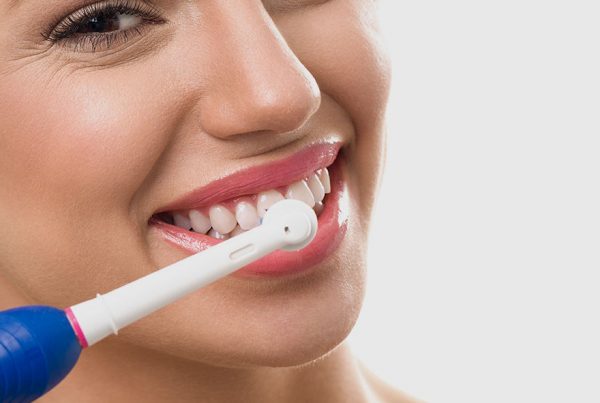It seems strange when you go to the dentist that you are required to tell them everything about your medical history, current health and previous diseases. After all, you’ve only come to have your teeth checked. So why would your dentist need to know about your blood pressure medication? Your dentist requires a full medical history from you so that you can be treated safely. There are certain medical conditions and drugs that impact on the health of your mouth and how your dentist will treat you. Also, it’s vital that your dentist has an accurate medical history in case any emergency arises while at the practice. For example, if you have asthma and suffer an asthma attack in the chair, your dentist will be able to deal with this more quickly and effectively if they are aware of your asthma and any other medical conditions.
Of course, there will be certain things that are not relevant to the dentist. The best thing to do is to give your dentist a full medical history, including things that you may not consider important to your teeth. This allows the dentist to judge which information is important and plan any dental treatment with that in mind. Your information is completely confidential and will not be disclosed to anyone else without your permission unless it is vital and in your best interests.
In this article we will consider the diseases, conditions and medications that are most relevant to your dental health and any treatment with your dentist. This is by no means a complete list but we will cover the main things that your dentist must be aware of.
Diseases, conditions and medications
Heart disease and raised blood pressure
Your dentist should be aware of any issues affecting your heart and blood pressure. Previous heart attacks or heart infections such as infective endocarditis must be disclosed to your dentist.
If you are on medications to thin your blood such as warfarin, your dentist needs to know. If you require a tooth extraction, your dentist may take extra precautions to make sure that you will stop bleeding after the treatment.
Some blood pressure medications known as calcium channel blockers (e.g. amlodipine) can cause your gums to swell and overgrow, making it very hard for you to clean your teeth.
Diabetes
Diabetic patients must let their dentist know about this. Diabetes impairs your body’s immune system, making you more susceptible to infections. This means that after treatments such as tooth extraction, you are more likely to have complications during healing.
Due to having a weakened immune system, diabetic patients are more at risk of developing gum disease. This is a disease where the foundations around your teeth are gradually lost. Gum disease can ultimately lead to tooth loss. If your diabetes is well controlled, it is easier to keep gum disease at bay. And if your gum disease is under control, it becomes easier to control the sugar levels in your blood.
Cancer
Patients who are about to undergo treatment for cancer are often told to get their teeth checked by a dentist. If there are any problems with your teeth during cancer treatment, it can lead to much more serious infections because your body is already weakened by the cancer treatment.
Asthma
If you have asthma, you should take your inhalers to every appointment at the dentist. Some people find visiting the dentist stressful and if stress brings on your asthma, it’s vital that you have your inhalers nearby. Dentists do keep inhalers in case of emergency but it would be a good idea to bring your own.
Steroid inhalers can sometimes lead to infections in your mouth. Commonly, this is a fungal infection that can develop on the throat and palate. This is easy to treat and easy to avoid. After using your steroid inhaler, be sure to rinse with water to get rid of any steroid that has been left at the back of your mouth. This keeps your palate healthy and prevents oral infections.

Allergies
If you have allergies, you must make your dentist aware of these. Not every allergy is relevant but some allergies to things such as penicillin and latex will be relevant to your dentist. The best thing to do is to tell your dentist about all allergies or any reactions that you have had in the past to antibiotics or medications.
Hepatitis and HIV
These are both infectious diseases that your dentist must be made aware of.
Treatment for HIV will weaken your immune system so it’s important that your dentist is aware. Minor dental infections can become much more serious in patients with HIV.
Depressed immune system
Any disease or condition that causes you to have a weaker immune system is relevant to your dentist. Like with HIV, if your immune system is depressed, minor infections in your mouth can result is serious complications. Therefore, your dentist may need to take extra precautions when treating you.
If you have had an organ transplant, you will probably take a medication such as cyclosporine. Cyclosporine can cause your gums to overgrow similar to calcium channel blockers.
Epilepsy
You must make your dentist aware if you have epilepsy in case you have an epileptic fit while at the dentist.
Epanutin (drug name, phenytoin) is a medication used for treatment of epilepsy. Again, similar to the other medications above, this drug can cause your gums to overgrow around your teeth, making it very tricky to get them clean during brushing.
Bisphosphonates
Bisphosphonates are a type of medication used for the treatment of osteoporosis and also certain cancers. This drug can impair your ability to heal after having treatment such as a tooth extraction which can lead to serious complications.
Therefore, if you take bisphosphonates in any form or have taken then in the last 10 years, you must inform your dentist.
Not an exhaustive list
That is certainly not a list of every health condition or medication that might be important to your dentist. These are just examples to show you that all sorts of things can have an impact on how your dentist treats you. Loads of conditions can affect your dental health so make sure that when you visit your dentist, you give them a full account of your medical conditions and any medications. If you’re not sure if it’s relevant, tell your dentist anyway.
Keep updated with the Online Dentist newslettersign up today
Recent Articles
 Tooth brushing is the best way we have to remove bacteria from our mouths. The majority of problems with your teeth are caused by bacteria. Bacteria making holes. Bacteria damaging...
Tooth brushing is the best way we have to remove bacteria from our mouths. The majority of problems with your teeth are caused by bacteria. Bacteria making holes. Bacteria damaging...
 This article is all about toothpaste, what should be in it and why you should use it when brushing your teeth. Forgive me but I'm going to start out with...
This article is all about toothpaste, what should be in it and why you should use it when brushing your teeth. Forgive me but I'm going to start out with...




